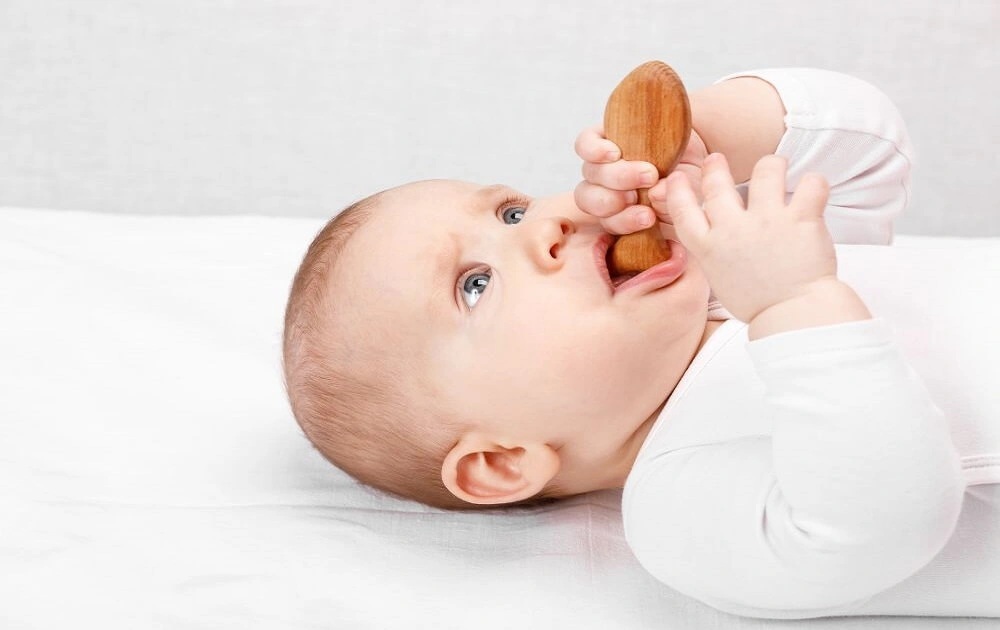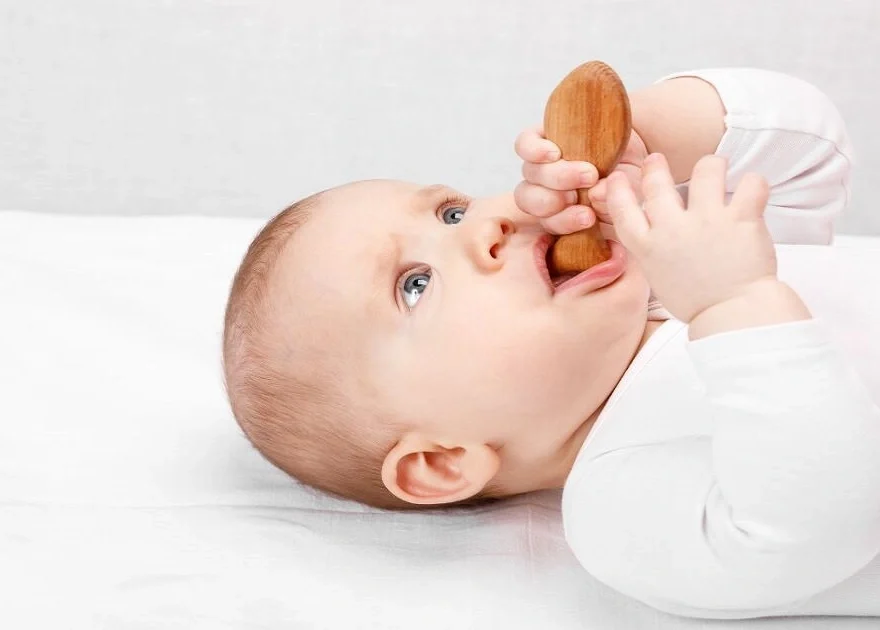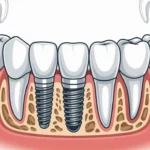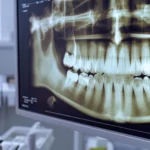Have you ever heard a strange squeaking or scraping sound coming from your baby’s mouth? That’s likely baby grinding teeth, a common behavior in infants and toddlers that may catch many parents off guard. While it can sound unsettling, it’s typically harmless and temporary.
Whether your baby is teething, exploring, or responding to discomfort, teeth grinding—also called bruxism—is often part of normal development. Still, understanding why it happens, how to ease it, and when to seek help can give you peace of mind.

Content
What Is Baby Teeth Grinding (Bruxism)?
Bruxism refers to the grinding, clenching, or gnashing of teeth. When it happens in babies, it’s usually during sleep or quiet play. This can begin as early as the appearance of the first teeth (around 6–10 months old), and while most cases resolve naturally, some children continue grinding into toddlerhood.
Baby Grinding Teeth: Why It Happens
There isn’t always one clear cause for baby grinding teeth, but here are the most common reasons your little one might be doing it:
1. Teething Pain Relief
As baby teeth push through the gums, your child might clench or grind to ease the pressure and discomfort.
2. New Sensory Discovery
Teeth are a novelty! Babies use their mouths to explore new feelings, and grinding can be a simple reaction to discovering that they now have teeth.
3. Ear Infections or Illness
Grinding may happen in response to earaches or sinus pressure, especially if it worsens during naps or bedtime.
4. Jaw Development and Bite Changes
As their mouth grows, your baby’s top and bottom teeth might not line up perfectly. Grinding can help them subconsciously “fit” their bite together.
5. Stress or Emotional Triggers
In toddlers, bruxism can appear in response to stressors like a new sibling, separation from parents, or major changes in routine.
6. Genetics and Sleep Disorders
Some children are simply more prone to bruxism due to inherited factors or sleep disturbances such as night terrors or snoring.
Baby Grinding Teeth: How to Help at Home
Most cases of baby grinding teeth require no treatment and go away with time. But if you want to ease discomfort and prevent habits from forming, try these parent-approved solutions:
1. Provide a Cold, Safe Teething Toy
Offer a chilled silicone teether for your baby to chew on during teething phases. This can soothe sore gums and reduce the urge to grind.
2. Stick to a Consistent Sleep Routine
Overtired babies are more likely to clench or grind their teeth during sleep. Keep a consistent bedtime schedule with calming activities to help your child settle peacefully.
3. Watch for Signs of Stress
Even young children feel stress. Minimize loud noise, overstimulation, and major changes in environment. Reassurance and routines go a long way.
4. Encourage Fluid Intake
Dehydration can exacerbate discomfort and inflammation. Make sure your baby is drinking enough breast milk, formula, or water (if age-appropriate).
5. Keep the Environment Smoke-Free
Secondhand smoke has been linked to increased bruxism in children. A smoke-free home promotes better overall health and reduces oral risks.
6. Massage Your Baby’s Gums or Jaw
Gentle gum massages with a clean finger or soft cloth can provide relief, especially before naps or bedtime.
When to Be Concerned About Baby Teeth Grinding
Occasional baby teeth grinding is usually nothing to worry about. However, speak with your pediatrician or pediatric dentist if you notice:
- Excessive grinding that happens daily or disrupts sleep
- Worn down or chipped baby teeth
- Frequent waking during the night
- Crying during eating or nursing
- Jaw clenching, facial tension, or signs of discomfort
- Grinding continuing past age 3–4
Remember: early dental care is key to lifelong oral health. Even if it’s just for reassurance, a quick dental exam can put your mind at ease.
Baby Grinding Teeth: Should You See a Pediatric Dentist?
If you’re concerned about your baby grinding their teeth—especially if it’s causing visible damage or behavioral issues—a pediatric dentist can help. These specialists understand the unique needs of growing mouths and can:
- Examine tooth alignment
- Check for signs of wear
- Provide recommendations for teething comfort
- Offer tips to break grinding habits early
- Rule out related concerns like jaw issues or bite abnormalities
Don’t wait until your baby has a full set of teeth to establish good dental habits. The American Academy of Pediatric Dentistry recommends a child’s first dental visit by their first birthday.
Final Thoughts on Baby Grinding Teeth
While baby grinding teeth can be surprising to hear, it’s a common phase that many children go through—often without any lasting impact. Whether your little one is teething, exploring new sensations, or simply adjusting to changes in their growing mouth, most grinding fades with time.
Still, it’s important to stay attentive. By offering comfort, maintaining routines, and watching for signs of stress or discomfort, you can help ease the habit and protect your child’s developing smile.
Frequently Asked Questions
Is baby teeth grinding dangerous?
Usually no. Most babies outgrow it by age 3 and experience no lasting dental issues.
How long does baby grinding teeth last?
It varies, but many children stop grinding once all baby teeth erupt and the jaw stabilizes.

Arlene Ross is a health blogger who enjoys writing on her website. Arlene has always had an interest in medicine, and she hopes to become a doctor one day. She loves reading about medical discoveries, especially when they are for rare conditions that don’t have much research yet. She also likes exploring the science behind different diets and nutrition programs.






